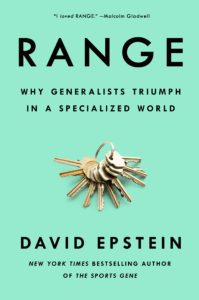


"The feeling of learning is based on before-your-eyes progress, while deep learning is not."Īnalogical thinking–taking learning and experience from one domain, and applying it to another–allows us to reason through problems that we haven't seen before. Three learning strategies with scientific backing: spacing, testing, and using making-connection questions (these all impair performance in the short-term). Tolerating big mistakes can create the best learning opportunities." "Hypercorrection effect: The more confident a learner is of their wrong answer, the better the information sticks when they subsequently learn the right answer.We need to find ways to incentivize this kind of learning. Learning that sticks and can be applied broadly is often slow and frustrating. We should generally try to learn like improve masters: "dive in and imitate and improvise first, learn the formal rules later." "great rewards will accrue to those who can take conceptual knowledge from one problem or domain and apply it in an entirely new one".The other benefit of broad experience is that the more constrained and repetitive a challenge, the more likely it is to be automated in future. "Our greatest strength is the exact opposite of narrow specialization. "When narrow specialization is combined with an unkind domain, the human tendency to rely on experience of familiar patterns can backfire horribly-like the expert firefighters who suddenly make poor choices when faced with a fire in an unfamiliar structure.".In "wicked" domains, where the rules are unclear or incomplete, narrow experience doesn't improve outcomes. "The challenge we all face is how to maintain the benefits of breadth, diverse experience, interdisciplinary thinking, and delayed concentration in a world that increasingly incentivizes, even demands, hyperspecialization."Įxperience leads to expertise only in "kind" environments, where there are repeating patterns, like firefighting and chess.The top performers in many fields often have a large "sampling period" where they try many things, and then when they find something they like, they naturally tend to dedicate more time to it.įor those that are interested in many things, or who have interests that change, they are often plagued with the thought "I am so behind", rather than viewing their experience as a unique advantage. We are often pushed to focus early, and that is often not the optimal path.


 0 kommentar(er)
0 kommentar(er)
